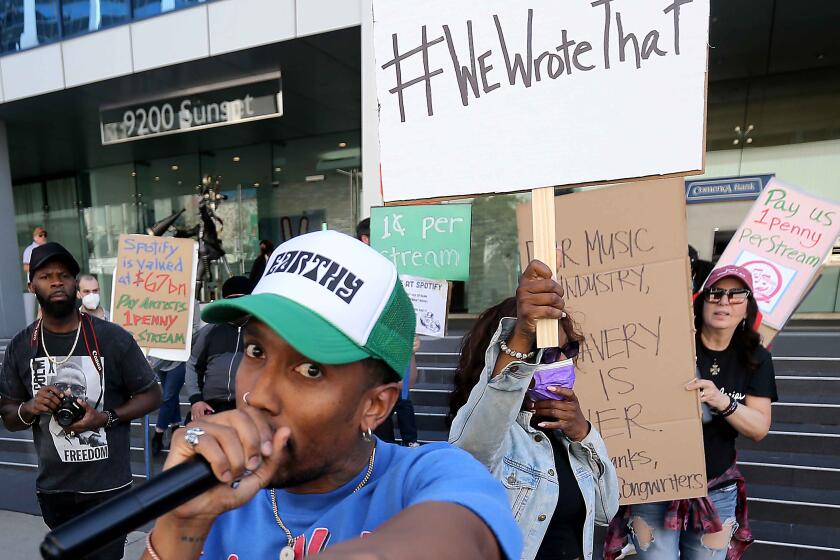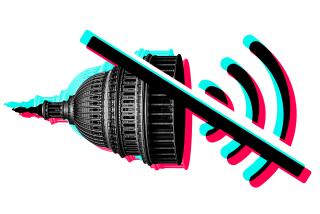What does Bandcamp’s sale to Epic Games mean for independent music?
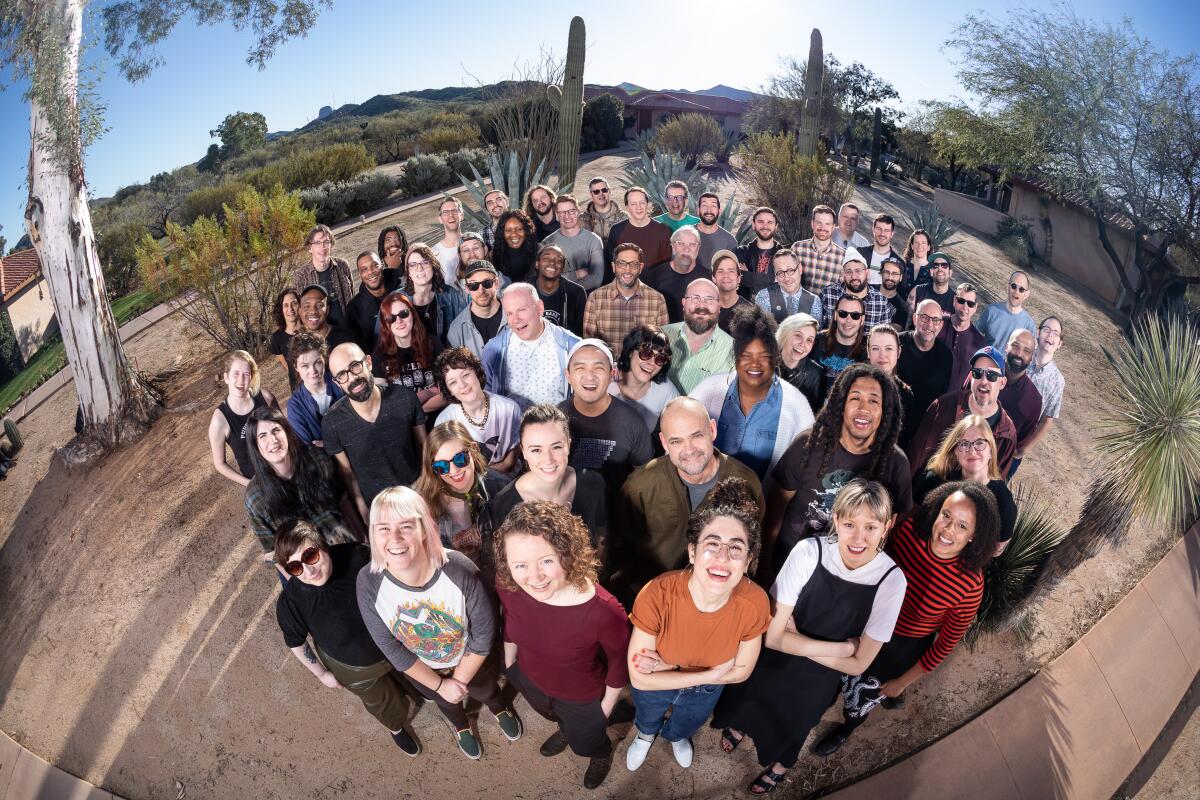
Since the announcement on Wednesday that online music distributor Bandcamp, a central hub for independent artists and labels selling digital and physical media, has been sold to Epic Games, the gaming giant responsible for Fortnite, Gears of War and the Infinity Blaze series, musicians and fans have been expressing concern that their beloved platform is on its way to becoming another victim of multinational consolidation.
“Honestly, this sucks. half the money i make off music comes from bandcamp, and even if things are fine for the next few months, this can only go in worse directions,” wrote singer Mel Stone in one widely quoted tweet.
The sale was announced on social media by Bandcamp CEO Ethan Diamond, who wrote that the company would operate as a stand-alone entity within Epic’s ecosystem. Diamond, who did not disclose a sale price, will continue in his role.
In the statement, Diamond, who founded the company in 2008, attempted to assure the legions of Bandcamp devotees drawn by the platform’s artist-first model and its monthly Bandcamp Fridays event, when the company waives its share of sales to signal its allegiance to the plight of struggling artists.

Noting that artists selling on Bandcamp will continue to receive what he characterizes as “an average of 82% of every sale,” Diamond emphasized that “the products and services you depend on aren’t going anywhere, and we will continue to build Bandcamp around our artists-first revenue model.”
Selling to Epic, he continued, will allow Bandcamp to expand internationally and further invest in development across the platform, including design, mobile apps, merchandizing tools, vinyl manufacturing and livestreaming initiatives. Diamond described Epic as “champions for a fair and open internet,” likely a reference to Epic’s 2020 lawsuits against Apple and Google for antitrust and anticompetitive behavior related to the tech giants’ in-app payment systems.
“Epic and Bandcamp share a mission of building the most artist-friendly platform that enables creators to keep the majority of their hard-earned money,” said Epic Games in a statement accompanying the purchase.
With artist-friendly Bandcamp Fridays and initiatives that benefit progressive causes, the online music platform has become beloved beyond its indie roots.
Despite the companies’ assurances, artists-rights activists nervously pondered the repercussions of the sale, which comes on the heels of criticisms of audio streaming leader Spotify over its affiliation with podcaster Joe Rogan and its payment rates to artists and songwriters.
“Too few companies have too much power in every part of the music business,” wrote the Washington, D.C.-based artists-rights group Future of Music Coalition in a social media thread, adding that “some in the music community have real frustrations with how Epic has dealt with music licensing in the past.”
Epic Games is flush with cash due to “Fortnite,” the popular multiplayer game introduced in 2017. Operating with a so-called “games as a service” model that generates revenue through ongoing micropayments, “Fortnite’s” success has enabled recent investments including the 2021 purchase of Harmonix, the creator of the popular “Guitar Hero” and “Rock Band” franchises. Epic’s gaming development platform Unreal Engine, which was developed by Epic’s founder Tim Sweeney, has evolved into a high-tech tool used in television series including “The Mandalorian” and “Westworld.”
All that technological might stands in stark contrast to the humble indie business that Diamond created to enable seamless online transactions between artists and fans. A beloved platform that earned its early customer base through its indie rock and experimental music offerings, its growth was financed by a single, modest infusion of venture capital during its early ascent. According to Diamond in a 2020 interview, Bandcamp has been profitable since 2012.
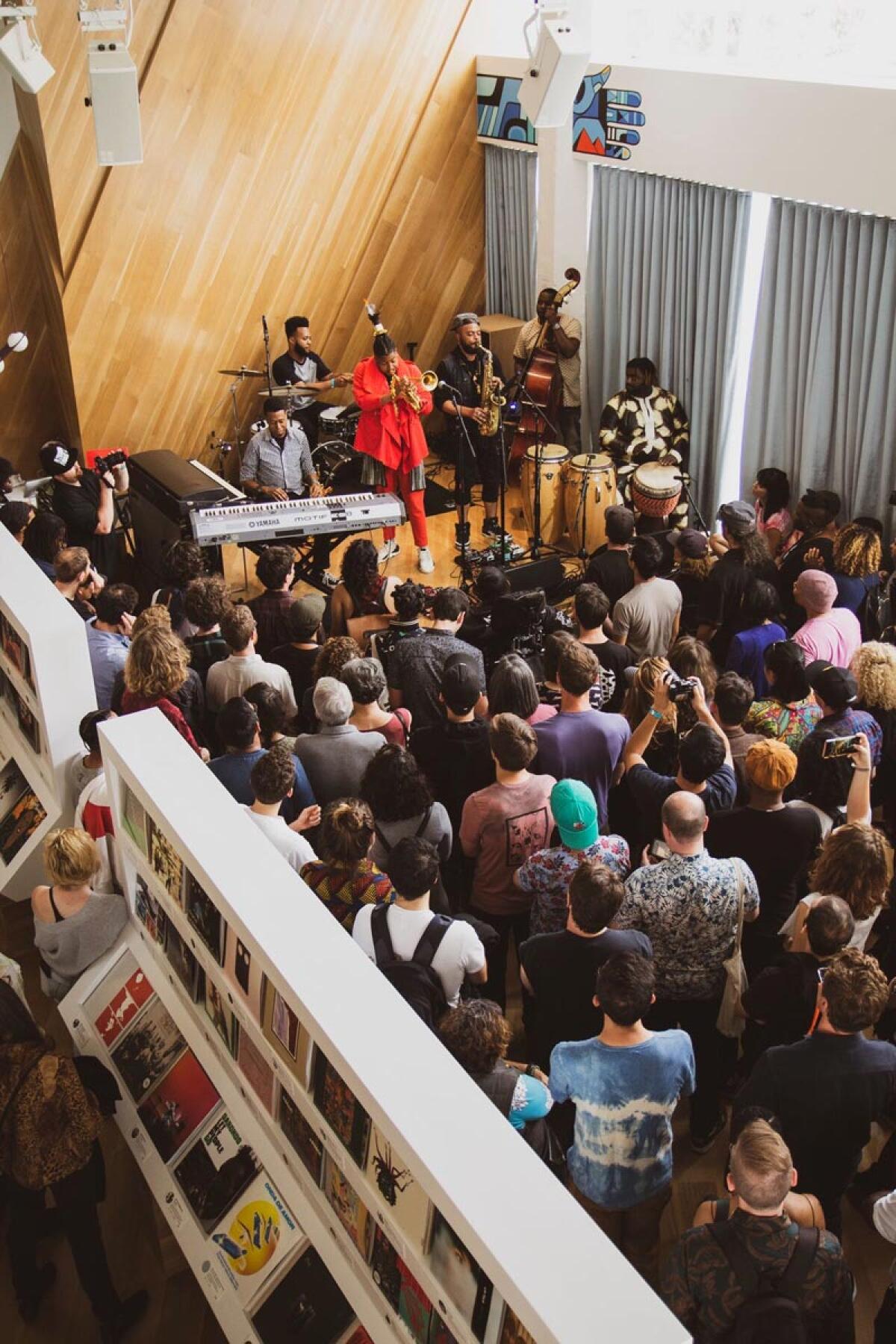
In 2020, as COVID-19 shut down nightlife and the concert business, musicians directed their attention to Bandcamp, which by then had built an infrastructure to support sales of merchandise, vinyl and other formats. In response, that platform initiated the Bandcamp Fridays campaign, whereby, on the first Friday of each month, the platform eliminates its percentage of all sales. All told, notes a ticker on the site’s homepage, “Fans have paid artists $890 million using Bandcamp, and $207 million in the last year.”
“It’s complicated,” says Kevin Erickson, who heads the Future of Music Coalition. “Generally, musicians have felt like Bandcamp has been a reliable ally and has stepped up in some important ways during the pandemic. There’s concern about where that might change in the future.”
He adds, “We want companies to do well by doing right by musicians, and if Bandcamp under the new ownership is able to stick to the principles that have led it to the success that it enjoys now — and scales the size of the audience — that would be a net win for a lot of musicians.”
About 100 artists gathered on the sidewalks of West Hollywood to protest what they see as streaming giant Spotify’s miserly payments for songwriters.
In 2012, Epic founder Tim Sweeney sold 40% of the company to Tencent, the giant Chinese multinational media firm. Tencent also owns a 10% stake in the Universal Music Group, the word’s biggest record company, and four China-based music apps that have a combined listenership of more than 800 million people.
Noting the convoluted ownership structures, musician Damon Krukowski of the Union of Musicians and Allied Workers wrote, “Wait Epic is 40% owned by Tencent who have stakes in… Spotify and the major labels. Did we just lose our independent digital record store,” he wondered.
“The stakes that Tencent has in the record labels and in Spotify are not controlling stakes — or anything close to controlling stakes — so the degree of influence it can exert is minimal,” says Mark Mulligan, media and technology analyst and co-founder of Midia Research, which tracks the streaming industry. But, he notes, Tencent’s larger stake in Epic Games means that it could exert more direct influence on monetizing Bandcamp’s platform.
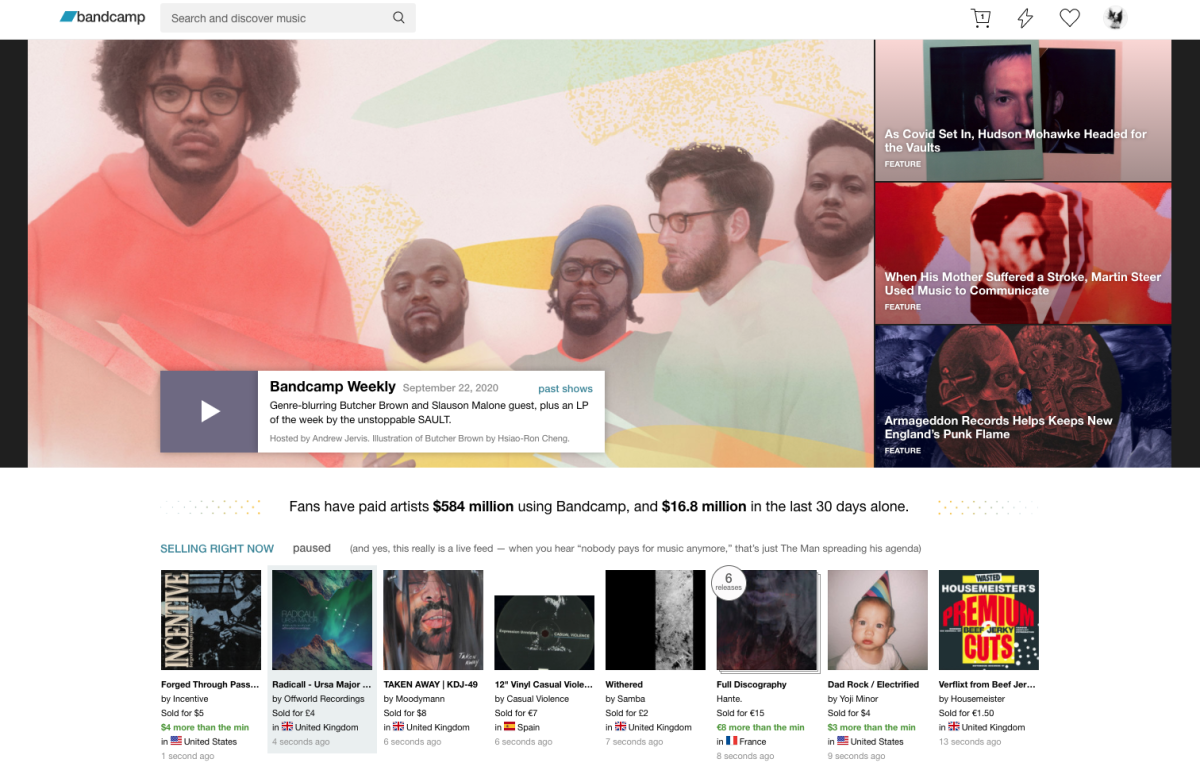
“Bandcamp and Epic Games are both fandom companies, and so is Tencent Music,” says Mulligan, adding that two-thirds of Tencent Music’s revenue “comes from non-music. It comes from all the ways of people expressing themselves.” He adds that Epic allows Fortnite players to donate a portion of the money they spend in the game to their favorite streamer, a fan-driven initiative that awards excellence. “Epic Games and Tencent both understand, as does Bandcamp, the importance of people being able to identify themselves through fandom.”
In 2020, Diamond told The Times that he and his cofounders were “keenly aware of the important role Bandcamp plays in the livelihoods of many musicians, and that’s a responsibility we take very seriously.”
As artists on social media digested the news, many expressed a sense of resignation, one best captured by Canadian indie musician Allister Thompson. “Well, no matter how things end up, one thing’s for sure: the worry with people are responding en masse to the Bandcamp sale indicates just how traumatized artists are by having the football constantly yanked away from them.”
More to Read
The biggest entertainment stories
Get our big stories about Hollywood, film, television, music, arts, culture and more right in your inbox as soon as they publish.
You may occasionally receive promotional content from the Los Angeles Times.
